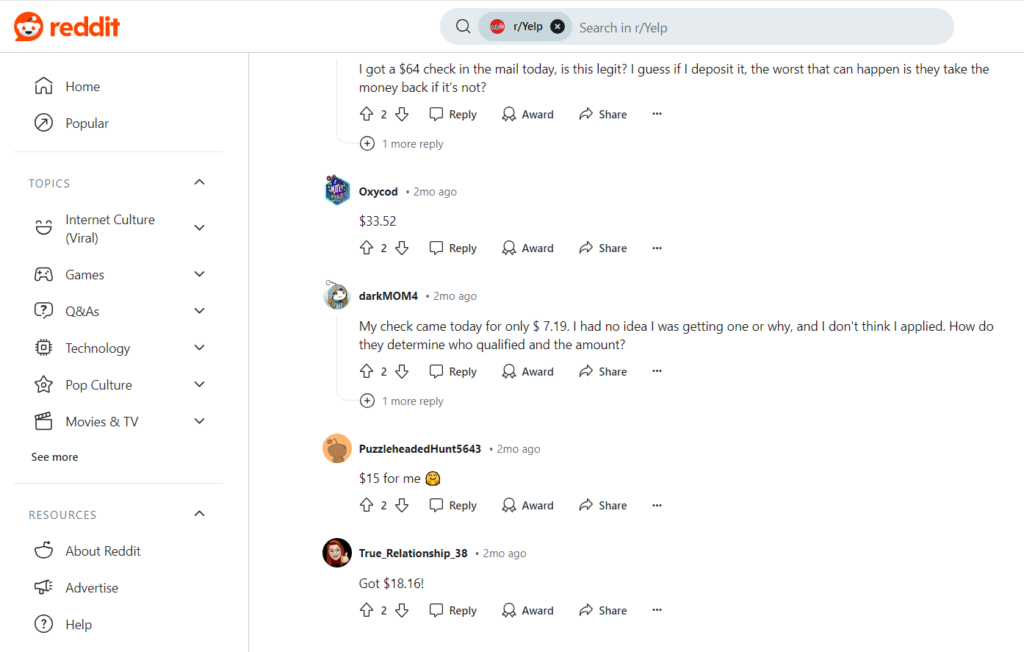The Gruber v. Yelp Inc. settlement stems from a class action lawsuit filed against Yelp, Inc., which was accused of violating the Telephone Consumer Protection Act (TCPA). The TCPA restricts companies from making unsolicited marketing calls or sending text messages to consumers without their express prior consent.
The lawsuit was brought by Justin Gruber, the lead plaintiff, who alleged that Yelp sent unsolicited text messages to individuals’ mobile phones, thereby violating federal law.
Background of the Case:
Yelp, a popular platform for user-generated reviews of businesses, allegedly sent promotional and marketing text messages to individuals without first obtaining their consent. Under the TCPA, businesses are prohibited from sending automated marketing communications via text message without clear consent from the recipient. The lawsuit claimed that Yelp’s actions violated this federal statute by sending unwanted messages to a large number of consumers.
The class action lawsuit represented all individuals who had received unsolicited text messages from Yelp. The plaintiffs sought to hold Yelp accountable for these alleged violations, and they demanded compensation for the unauthorized texts sent to their phones.
How Legitimate is the Checks from Gruber v Yelp inc.
The checks from the Gruber v. Yelp, Inc. settlement are legitimate, as this was a real class action lawsuit against Yelp. The lawsuit accused Yelp of violating the Telephone Consumer Protection Act (TCPA) by allegedly sending unsolicited text messages. The settlement provided eligible class members with monetary compensation.
A few people confirmed that they received checks amounting to between $7.16 to $64 on the Reddit thread.

Key Details of the Settlement:
- Defendant: Yelp, Inc.
- Plaintiff: Justin Gruber, representing a class of affected individuals who received unsolicited text messages from Yelp.
- Claims: The lawsuit claimed that Yelp violated the TCPA by sending text messages to consumers without their prior express consent.
- Settlement Agreement:
- After litigation, the parties agreed to a settlement rather than going to trial. Yelp did not admit any wrongdoing but agreed to settle to avoid further legal costs and risks.
- The settlement involved Yelp agreeing to compensate class members, with the total payout amount depending on the number of valid claims submitted.
- Individuals who received text messages from Yelp during a specified time period were eligible to file claims for compensation.
- Compensation:
- Class members who filed valid claims were entitled to receive a portion of the settlement fund. The amount of compensation per individual was determined by the total number of claims received.
- Checks were mailed to eligible class members, and these checks represented the final distribution of the settlement funds.
- Official Settlement Website:
- The settlement was administered through an official settlement website where class members could obtain information, file claims, and check the status of their compensation.
- No Admission of Guilt:
- As is typical in class action settlements, Yelp did not admit any liability or wrongdoing as part of the settlement. The settlement was reached as a compromise to avoid the uncertainties and expenses associated with a trial.
Also Read: Unlocking the Power of CRM Software
Conclusion:
The Gruber v. Yelp Inc. settlement is a resolution of a class action lawsuit that addressed allegations of unsolicited text messages being sent by Yelp, in violation of the TCPA. Affected individuals who filed claims are receiving compensation, and the case serves as a reminder of the importance of consumer privacy protections under federal law.



